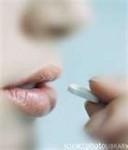 World Menopause Day is October 18th. If you suffer with hot flashes or night sweats or other symptoms of menopause please join me at an online event called:
World Menopause Day is October 18th. If you suffer with hot flashes or night sweats or other symptoms of menopause please join me at an online event called:
World Menopause Day Health Summit
Come and join the on-line conversation. Ask the panelist your most pressing menopause questions.
The list of expert panelists will be breaking taboo and talking everything menopause.
Don’t feel alone any longer. That foggy brain feeling you’re not quite sure about…. we’ll be talking about solutions.
Weight gain around the middle that you simply can’t get rid of…. well we’ll be talking about solutions that have worked for that too.
Most women feel their doctor should give them the answers to all their health questions as they age, unfortunately, doctors today often don’t have natural solutions. What they have is a prescription pad.
If you’re like me, you just don’t trust the pills anymore. If you feel confused by all the conflicting information about HRT, (hormone replacement therapy), YOU are not alone.
We’re going to talk about all the other options that work. Diet and life style solutions such as herbal alternatives that really work and have been used for centuries. I guarantee you will walk away with useful information you won’t hear anywhere else.
End the confusion and the mysteries
behind the big “M”,



